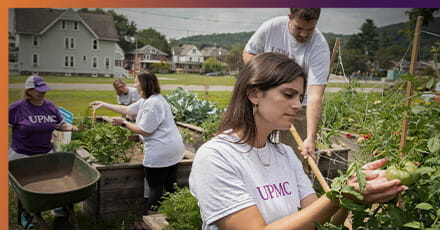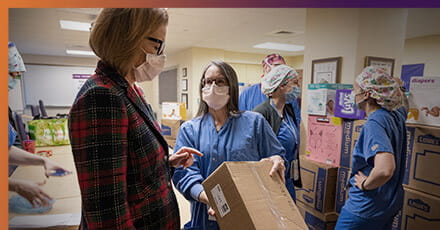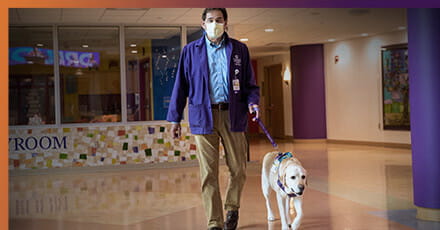During Black Maternal Health Week in April 2024, UPMC Magee-Womens Hospital hosted a community listening session in McKees Rocks, Pa.
The event, Birthing While Black: Improving Maternal Health Outcomes in Women of Color, took place at the Uansa Village Community Room. It gave residents and community leaders the chance to discuss health disparities and diversity in representation.
It also addressed how to better support the lives of moms and babies in the community. Statistics show Black women in the U.S. are three times more likely to die from a pregnancy-related cause.
“It's important for us to save lives, (save) babies' lives,” says Bonita Pannell, women’s outreach director, UPMC Magee-Womens Hospital. “So, we're not going in the community saying, 'This is what you need.' We're listening to the community and what they're telling us they need."
According to a 2021 Pennsylvania Department of Health report, the national average for pregnancy-associated mortality was 82 deaths per 100,000 live births. The study found Pennsylvania’s rate was higher than those numbers.
In McKees Rocks and neighboring Stowe Township, the statistics are equally alarming.
According to the Allegheny County Infant Mortality Report from 2015 to 2019, infant deaths were especially high in those communities. Stowe Township’s infant mortality rate (IMR) was 24.1%. In McKees Rocks, the IMR was 15.3%.
“It is disheartening to know that here in Allegheny County, and especially in McKees Rocks, that we have such a high infant mortality rate,” says Tracey Conti, MD, chair, UPMC Family Medicine.
Dr. Conti says many of the causes of death are preventable. Reversing the trend, however, will require investing in community care and education with the necessary resources.
“I think it's really important for us to provide services before, during, and after pregnancy,” she says. “So that we provide a whole-person approach in order to improve outcomes.”
Another component of the solution, Dr. Conti says, is making sure women’s voices are heard. She believes that can be achieved through trusted partnerships and relationships, doula services, and ob-gyn providers who truly care.
“But also, community resources to give patients a voice to be filled, to feel valued, to feel that they have the resources needed to get through their pregnancy,” Dr. Conti says.
It’s something Dr. Conti is both professionally and personally passionate about.
"I am a mom of seven, and after having six easy pregnancies, my last pregnancy, I suffered a maternal morbidity,” she says. “It was my only pregnancy that I had to have a C-section. Part of that was because my voice wasn't heard, even as a college and graduate-educated person.”
Meeting people where they are
“A maternal care desert.”
That’s how Bonita describes McKees Rocks. She cites the lack of access to ob-gyn facilities and pharmacies in the area. Expectant mothers seeking prenatal care often need to take two buses to get there.
For that reason, organizers chose a location for the listening event that was easily accessible: right in the heart of the community.
“We have to be visible,” says Bev Moore, deputy executive director, Allegheny County Housing Authority. “Sometimes we even have to knock on doors to say, ‘We're here for you. We care about you. We want you to get what it is that you need.’”
Local physicians, including representatives from UPMC, and community officials participated in a panel discussion. They offered tips, guidance to resources, and potentially life-saving advice.
“I've gone to three of them so far,” says Danielle Oriola, who was six months pregnant at the time of the McKees Rocks event. “It's been amazing to be able to connect with the other ladies as well as to see the resources that are out there.”
Danielle says she has already connected with local doula organizations. She has also been able to participate in lactation programs and CPR training.
“My mom goes with me, and it's been great for us to bond,” Danielle says. “And she always says, ‘I wish I had resources like this as a first-time mother 30 years ago.’ Because she just is always so overwhelmed.”
It all amounts to valuable information Danielle can then share with her husband. And, as a salon owner, she's told her clients about the events and encouraged them to attend.
“It's just been, overall, a really great experience,” Danielle says.
At UPMC, Life Changing Medicine means being committed to the lives of moms and babies while meeting the needs of the community.
Pittsburgh (KDKA): UPMC pushes to connect pregnant patients with doctors in maternal care deserts.
See All That UPMC Does in the Community























